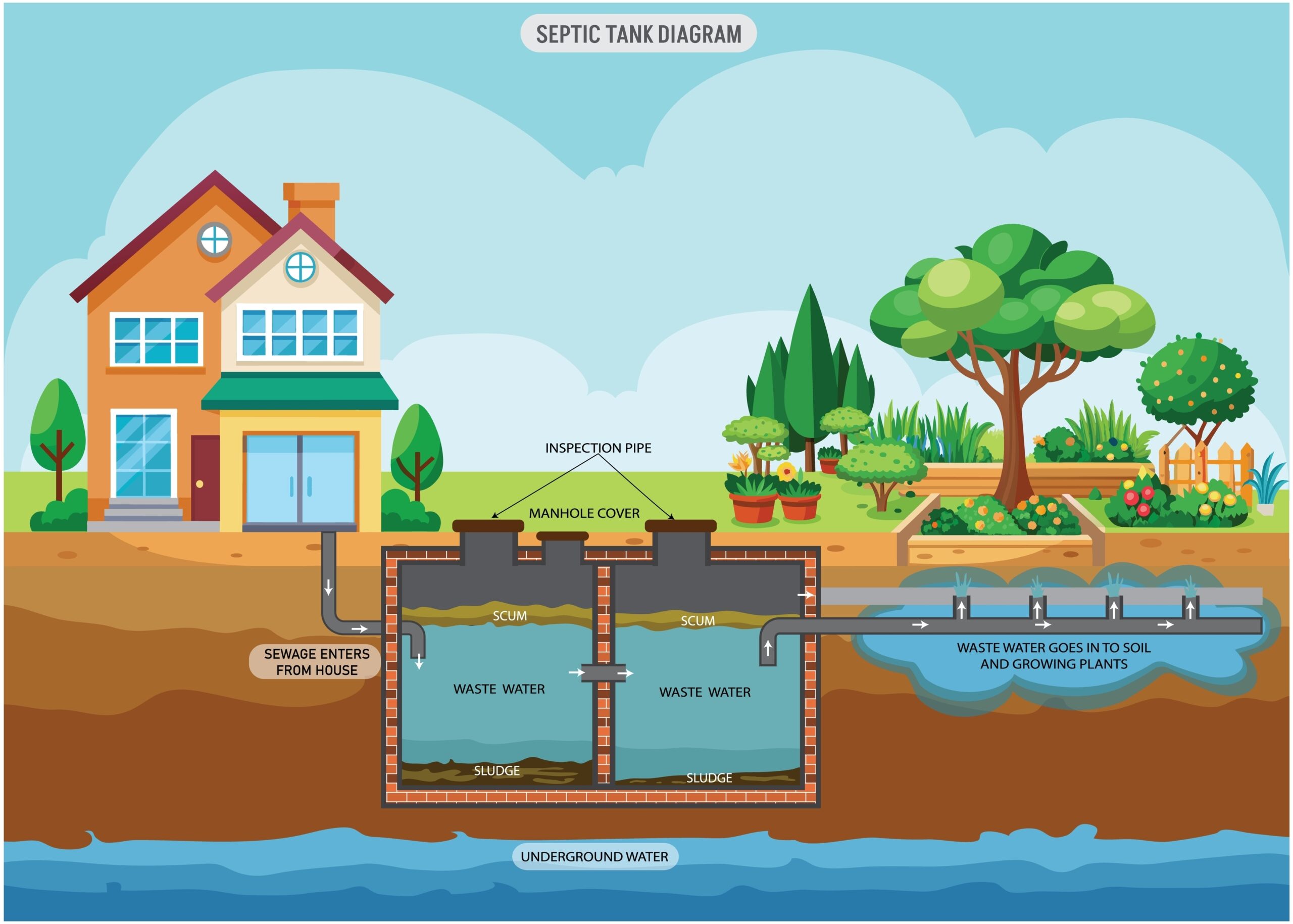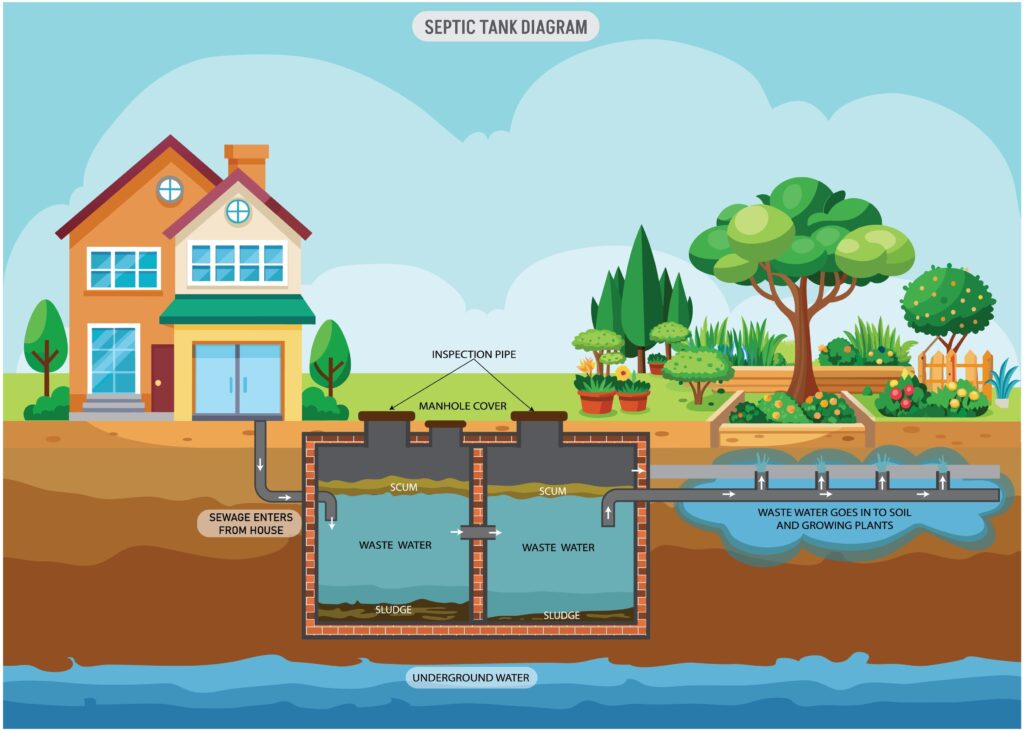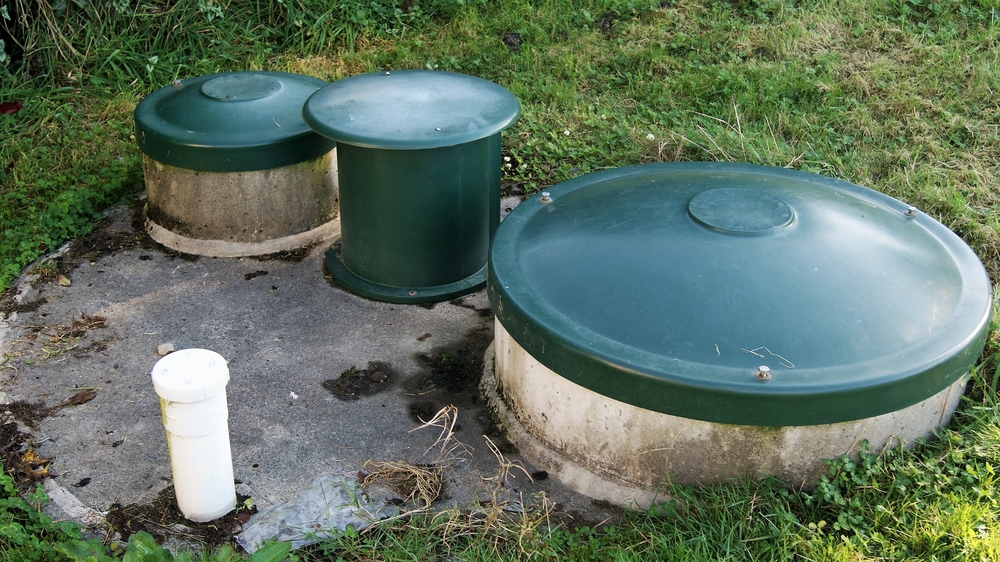A properly maintained septic tank is essential to protecting your home, your family’s health, and the environment. In Upstate South Carolina, where many properties depend on septic systems instead of municipal sewer lines, regular care ensures long-lasting performance and prevents expensive repairs. Understanding how septic systems work, recognizing early warning signs, and scheduling professional services on time can help homeowners avoid messy problems. This guide will walk you through the most important steps of septic tank maintenance so you can keep your system operating smoothly year after year.
How a Septic System Works in Upstate SC
A septic system is designed to treat and dispose of household wastewater safely. It typically consists of a septic tank, which holds solid waste and allows liquids to separate, and a drain field, where treated water filters into the soil.
- Solid waste settles at the bottom, forming sludge.
- Lighter materials like oils and grease float to the top, creating scum.
- Liquid effluent flows out into the drain field, where soil and bacteria finish the treatment process.
If not pumped regularly, sludge and scum can overflow, clogging the system and contaminating the yard or groundwater.
Why Septic Tank Maintenance Matters
Routine septic tank maintenance prevents backups, foul odors, costly repairs, and environmental hazards. In Upstate SC, local soil conditions—such as clay-heavy areas common in Greenville, Pickens, and Anderson counties—make consistent care even more important. Without proper upkeep, you may face:
- Sewage backups into your home.
- Drain field failure that requires expensive excavation.
- Groundwater contamination that threatens wells and local streams.
- Health risks from exposure to untreated wastewater.
How Often Should You Pump a Septic Tank in Upstate South Carolina?
On average, septic tanks should be pumped every 3 to 5 years, but several factors influence the schedule:
- Household size – Larger families fill tanks faster.
- Tank capacity – Smaller tanks require more frequent pumping.
- Water usage – Homes with high water consumption put added strain on systems.
- Garbage disposal use – Disposals send extra solids into the tank.
Tip: Keep records of your last pumping date to stay on schedule. Many Upstate homeowners find that scheduling pumping every 3 years helps avoid emergencies.
Daily Habits That Protect Your Septic System
Maintaining a septic tank isn’t just about pumping. Everyday choices inside your home have a direct impact:
Do’s
- Use water efficiently to prevent overloading.
- Spread laundry loads throughout the week.
- Dispose of cooking grease in the trash, not down the sink.
- Install water-saving fixtures where possible.
Don’ts
- Flush wipes, feminine products, or paper towels.
- Pour chemicals, paint, or medications down drains.
- Park vehicles on the drain field.
- Plant trees with invasive roots near the system.
These simple habits reduce strain on the tank and extend its lifespan.
Warning Signs of Septic Problems
Recognizing the early signs of trouble helps you take action before damage spreads. Common indicators that your septic tank needs attention include:
- Slow drains throughout the house.
- Gurgling sounds in toilets or sinks.
- Foul odors near the yard or inside the home.
- Standing water or unusually green grass around the drain field.
- Sewage backups in tubs or toilets.
If you notice these signs, contact a licensed septic service provider in Upstate South Carolina immediately.
Professional Inspections and Local Regulations
South Carolina’s Department of Health and Environmental Control (DHEC) provides guidelines for septic installation and maintenance. Professional inspections ensure compliance and prevent failures. A qualified technician will:
- Check sludge and scum levels.
- Inspect baffles, filters, and the tank structure.
- Evaluate the drain field for saturation.
- Provide pumping recommendations based on usage.
In some counties, permits may be required for repairs or system replacements. Always confirm local rules before beginning work.
Protecting Your Investment and the Environment
A septic system is a major investment, and proper maintenance protects both property value and the local ecosystem. In rural and suburban parts of Upstate SC, failing septic systems can leach waste into wells, streams, and rivers, threatening community water quality. By staying proactive with pumping, inspections, and daily care, homeowners safeguard their homes and contribute to a cleaner environment.
Find Trusted Septic Services in Upstate South Carolina
Homeowners in Easley, Greenville, Pickens, and surrounding Upstate areas can count on local professionals to keep septic systems in peak condition. Whether you need pumping, inspection, or emergency repair, connect with reliable providers through Easley SC Septic. Protect your home, your family, and your investment with trusted septic experts who understand the unique needs of our region.
#septictankmaintenance #upstatesouthcarolina #septicpumping #easleysc #homeownersguide





